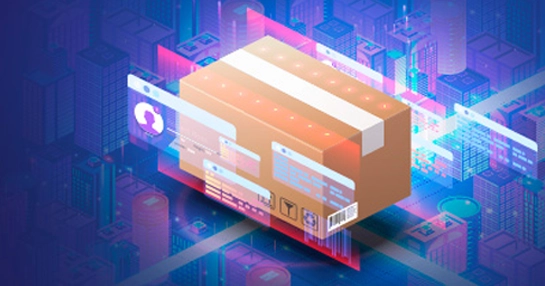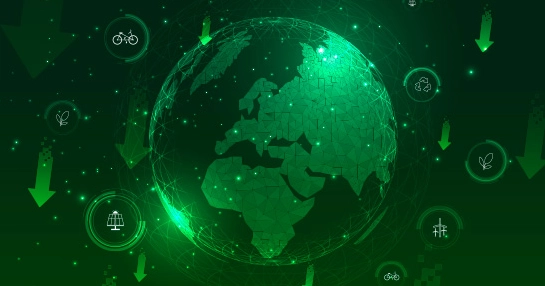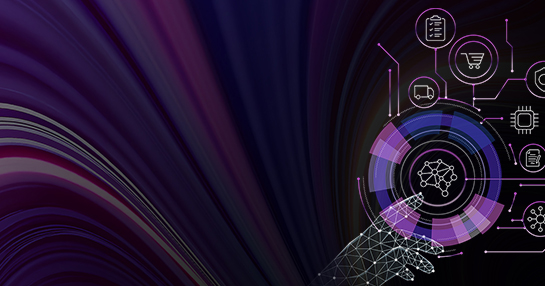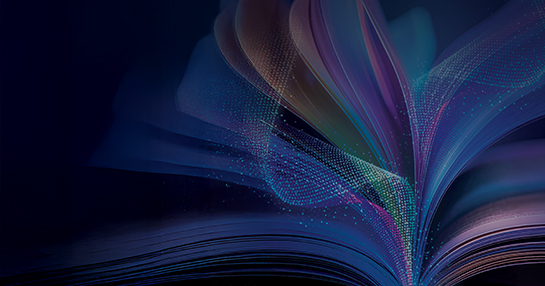GEP SMART™ revolutionizes procure-to-pay (P2P) processes with a unified platform that enhances end-to-end operations. This cloud-based procure-to-pay software features an intuitive interface and is compatible with all major ERP systems, offering multi-regional support for languages, currencies and legal requirements. It not only improves user satisfaction and productivity but also integrates seamlessly, setting the stage for transformative enterprise results.
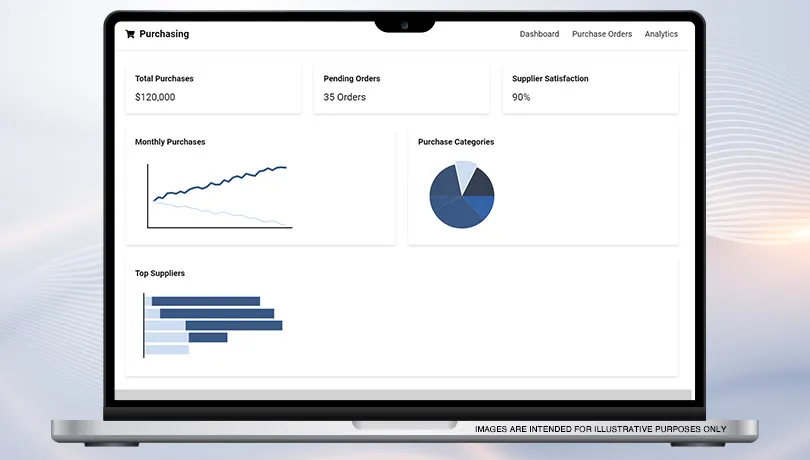
More Than “Purchasing Department Software”
Early purchasing software has evolved into comprehensive P2P suites with capabilities extending beyond simple purchasing to significantly impact the broader procurement function and the enterprise. These modern platforms are equipped with emerging technologies that promise transformative improvements in procurement:
AI is instrumental in alleviating the hands-on workload of present-day procurement. Top procurement software suites come with pioneering AI capabilities that execute processes across the source-to-pay spectrum. These AI engines can sort, organize and carry out hundreds of transactions per hour. The benefits to procurement are real and immediate: enhanced service delivery, more accurate processes, better scalability and improved reporting.
As an emerging technology, blockchain is expected to help reduce the time and costs associated with lengthy back-and-forth business processes and bring transparency to the supply chain while safeguarding sensitive data. Tamper-proof contracts, improved purchase order management and real-time settlements could all become a reality. From payments and audits to tracking inventory and assets, blockchain technology could deliver a new level of visibility and traceability to supply chains while enabling the procure-to-pay (P2P) process to realize huge operational gains.
IoT has the potential to change how procurement professionals accomplish their everyday tasks, such as the way orders are placed in the information cycle. Companies worldwide are embracing IoT-led disruption in essential functions all along their supply chains, from product tracking to order processing, from inventory management to warehousing. Purchasing software equipped with IoT technology will generate significant quantities of data which can help procurement pros react faster and more effectively to opportunities and threats. It will likely support blockchain through smart devices that will be interfacing with systems up and down the supply chain.
RPA combines AI and machine learning to automate routine, mundane and predictable tasks of a highly repetitive nature — freeing up resources and allowing personnel to focus on more strategic work. Robotic Process Automation can offer significant cost and efficiency benefits when automating transactional P2P processes and when executing simple bidding transactions by leveraging systemic controls and well-defined business rules.
Using the analytical capabilities of modern purchasing software such as data mining and assessment, procurement organizations can uncover the true value of copious amounts of structured and unstructured data, gain insights that improve planning and effectiveness, and attain a step change in performance. Big data analytics helps procurement teams become proactive by forecasting demand based on identified patterns, effectively broadening their traditional scope of action.
Frequently Asked Questions
Purchasing software or procurement software is a business software that allows organizations to automate their entire source-to-pay cycle. Right from analyzing and managing spends to managing contracts and making invoice payments, users can gain complete access to control every procurement process operation.
Every enterprise needs to purchase goods and services from third-party vendors or suppliers to meet its production needs or to fulfill its indirect purchasing requirements. And this purchasing needs to be carried out using a streamlined process, which can be best governed though a purchasing software . The purchasing software covers an entire ecosystem of operations from source to pay for an enterprise. That is, all the steps — from placing an order to paying the vendor for an order — are included in the purchasing software.
Purchasing organizations typically employ several interconnected software solutions to manage the procure-to-pay lifecycle. At the foundation, e-procurement systems facilitate requisitioning, approval workflows, catalog management, and purchase order creation. These systems streamline tactical purchasing for indirect and MRO categories.
For more strategic purchases, e-sourcing platforms support competitive bid events, reverse auctions, and supplier negotiations. These solutions often include modules for RFx creation, bid evaluation, and award management.
Contract lifecycle management (CLM) software governs supplier agreements, ensuring compliance with negotiated terms while tracking key dates and performance obligations.
Supplier relationship management (SRM) platforms provide comprehensive visibility into supplier performance, risk profiles, and development opportunities. These systems centralize supplier information and facilitate structured performance evaluations.
Many organizations now implement integrated source-to-pay (S2P) suites that combine these functionalities within a unified platform. This approach reduces integration challenges and provides seamless data flow across the procurement lifecycle.
For specialized purchasing needs, organizations often deploy industry-specific solutions such as direct materials procurement systems for manufacturing or service procurement platforms for professional services categories.
The strategic implementation of purchasing software leads to transformative benefits across multiple dimensions of organizational performance. Process efficiency represents the most immediate impact, with modern solutions automating routine transactions and approval workflows. This automation drastically reduces procurement cycle times while freeing procurement professionals to focus on higher-value activities.
Cost reduction remains a compelling benefit, with purchasing software enabling better spending control through improved compliance with negotiated contracts. By channeling purchases through approved suppliers and contracted rates, organizations typically capture additional savings. Enhanced visibility into maverick spending provides opportunities for targeted interventions and further savings capture.
Working capital optimization represents an increasingly important benefit. Advanced purchasing platforms support dynamic payment terms and early payment discount programs, allowing organizations to strategically deploy cash while strengthening supplier relationships.
Risk mitigation capabilities have become particularly valuable in any volatile business environment. Purchasing software provides proactive alerts for supply disruptions, compliance issues, and supplier financial distress, enabling preventative action before problems escalate.
Data-driven decision-making transforms purchasing from a reactive function to a strategic business partner. The analytical capabilities embedded in modern purchasing platforms deliver actionable insights that inform category strategies, supplier negotiations, and demand management initiatives.
Supplier collaboration improves dramatically with digital purchasing interfaces. Self-service portals reduce transactional friction while fostering greater transparency and accountability in buyer-supplier relationships.
Finally, purchasing software enhances audit capabilities and internal controls, providing comprehensive documentation of purchasing decisions and approval history. This documentation substantially reduces compliance risks while simplifying regulatory reporting and internal audits.
Organizations that fully embrace purchasing software realize ROI quickly while establishing sustainable competitive advantage through more efficient and effective procurement operations.
Cloud-Based Platform
Cloud-based purchasing software platforms are built for immediate and flawless uptake and operation. They are purpose-built and don’t require an enterprise to prepare expressly to adapt or port to the cloud.
Mobile-Native Platform
A mobile-native purchasing platform powered with multiple ecosystems can help the procurement team easily access dashboards and reports, enabling it to take part in sourcing events, as well as review and approve orders – from anywhere and anytime.
Big Data Analytics
Big data analytics can help procurement organizations perform ongoing and unplanned analysis to take control of data, unlocking the real value of data, so that it can derive insights for better planning and higher efficiency.
Robotic Process Automation (RPA)
Purchasing software that leverage RPA and include AI and machine learning to perform repetitive, conventionally time-consuming tasks can free up bandwidth for critical resources in the procurement team, enabling it to take on more strategic tasks.






